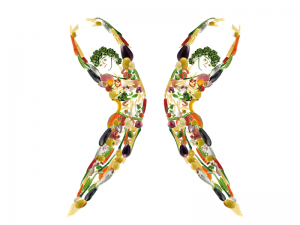At the end and beginning of the year, many of us reflect or carry out a life audit. It is a reminder that nothing can be taken for granted, including our physical and mental health. Thinking about our emotional needs at these times can be a useful tool, helping us understand where we feel nourished and where something may be missing.
 The core emotional needs are the same for everyone, yet the way we experience and prioritise them varies with genetics, culture, identity, and upbringing. For example, the need to feel safe, appreciated, or part of a community is universal, but each of us may express it in different ways.
The core emotional needs are the same for everyone, yet the way we experience and prioritise them varies with genetics, culture, identity, and upbringing. For example, the need to feel safe, appreciated, or part of a community is universal, but each of us may express it in different ways.
Humans are complex and life is sometimes complicated. When we do not check in on and meet our emotional needs, we can slip from struggle into real suffering. Our sense of purpose, motivation, and balance begins to erode. Life may feel flat, joyless, or overwhelming. Sadly, most of us learn little about this non-food nutrition until something goes wrong.
There is ongoing research into why some people seem more vulnerable to distress while others appear more resilient to life’s bumps.
Healthy human development can be described in terms of emotional nourishment or basic psychological needs. These needs are innate, universal, and essential. They help us operate, coexist, and live in community. When blocked, we see signs of distress, poor wellbeing, and failure to thrive.
Science once believed babies arrived as blank slates, but neuroscience now shows this is not the case. Infants are born with instincts and abilities. In the same way they can wriggle to the nipple and suckle at birth, they instinctively seek comfort through skin contact.
Unlike other mammals with higher hereditary programming, only around half of our knowledge is genetically scripted. The rest must be learned and practised. We understand the world and each other through mirroring and pattern matching. If our caregivers were not taught how to meet their own needs, passing on that knowledge can be difficult. This helps explain repeating patterns of poor wellbeing in some families and communities, and plays a part in intergenerational trauma in many marginalised groups
The Nine Emotional Needs
According to The Human Givens Institute, these needs broadly map onto Maslow’s Hierarchy of Needs, but instead of a ladder to climb, they are seen as interactive “nutrients” needed in balance throughout life.
Why they matter
-
- Security and safety provide the foundation to relax, learn, and grow. Without them, anxiety takes over. Think of a child trying to do homework in a chaotic or unsafe home. Concentration becomes almost impossible.
- Attention keeps us visible and connected. We thrive when it flows both ways, not just one. A friend who always talks but never listens often leaves us drained.
- Autonomy and control mean having a voice in our own lives. When it is absent, resentment and helplessness grow. Many people experience this in rigid workplaces or relationships where they have no say.
- Emotional intimacy offers the reassurance of being known and accepted for who we truly are. Without it, loneliness can creep in even within a crowd.
- Competence and achievement build confidence through small and large successes. Think about the lift you get from finishing a task well. It fuels motivation to keep going.
- Community gives belonging, shared identity, and protection from loneliness. Volunteering, sports teams, or faith groups all provide this anchor.
- Status is about being valued and recognised, not about fame or wealth. Losing status at work, for example, can feel destabilising even if pay and conditions stay the same.
- Meaning and purpose stretch us beyond the everyday, helping us feel that what we do matters. People often describe burnout not just as exhaustion but as emptiness, where meaning has leaked away.
- Privacy provides space to recharge and reflect. Some people need more of this than others, but without it, overwhelm and irritability rise quickly.

Maslow and Human Givens: Different maps, same terrain
Maslow’s hierarchy sets needs out as a pyramid, beginning with survival and moving up to self-actualisation. Human Givens, by contrast, sees needs as parallel and interactive. There is no top or bottom. All are important. This difference matters in practice. If you are struggling with meaning and purpose, you do not have to wait until every other box is ticked. Equally, meeting a need for privacy or attention can sometimes unlock energy and resilience that spills over into other areas of life.
A Quick Check-In
Which of these needs are easy for you to meet?
Which feel harder or are missing altogether?
Recognising your own emotional needs makes it easier to navigate the ups and downs of life and gives you back a sense of control over your wellbeing. Self-awareness and emotional intelligence play a part, but you do not have to work it out alone. Books, free resources, and the guidance of a wellbeing professional such as a psychotherapist or therapeutic coach can all help you restore balance and flourish.
The Human Givens Institute has produced an Emotional Needs Audit (ENA). It is a simple tool used by GPs, teachers, healthcare practitioners, and therapists. You can complete it in confidence and use it to guide your next steps.








